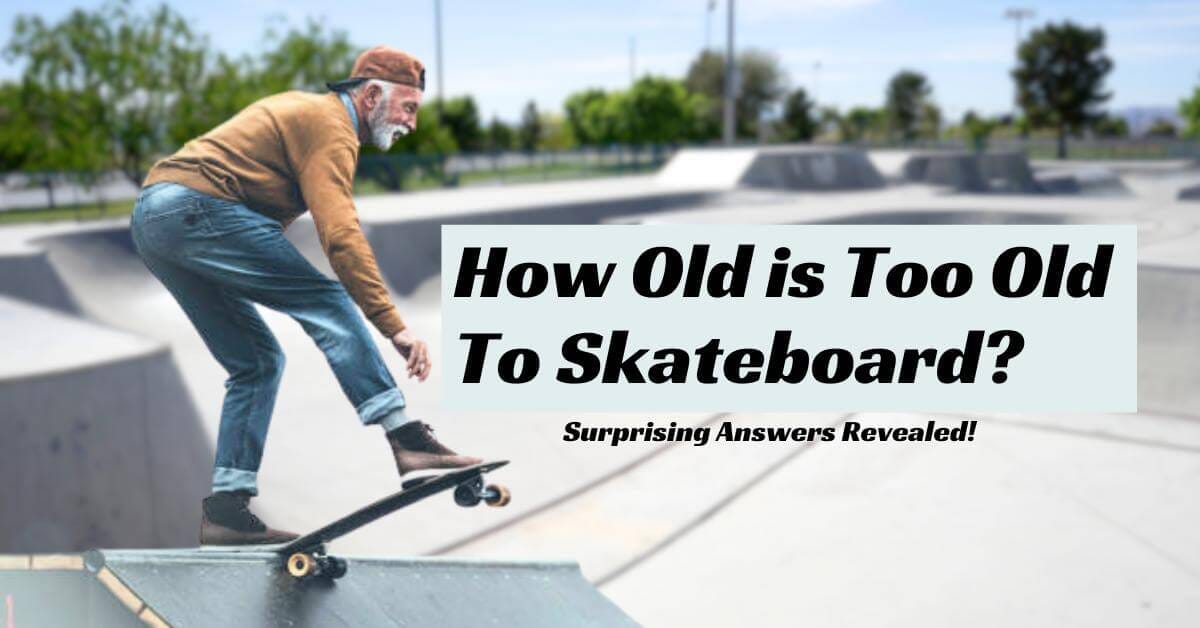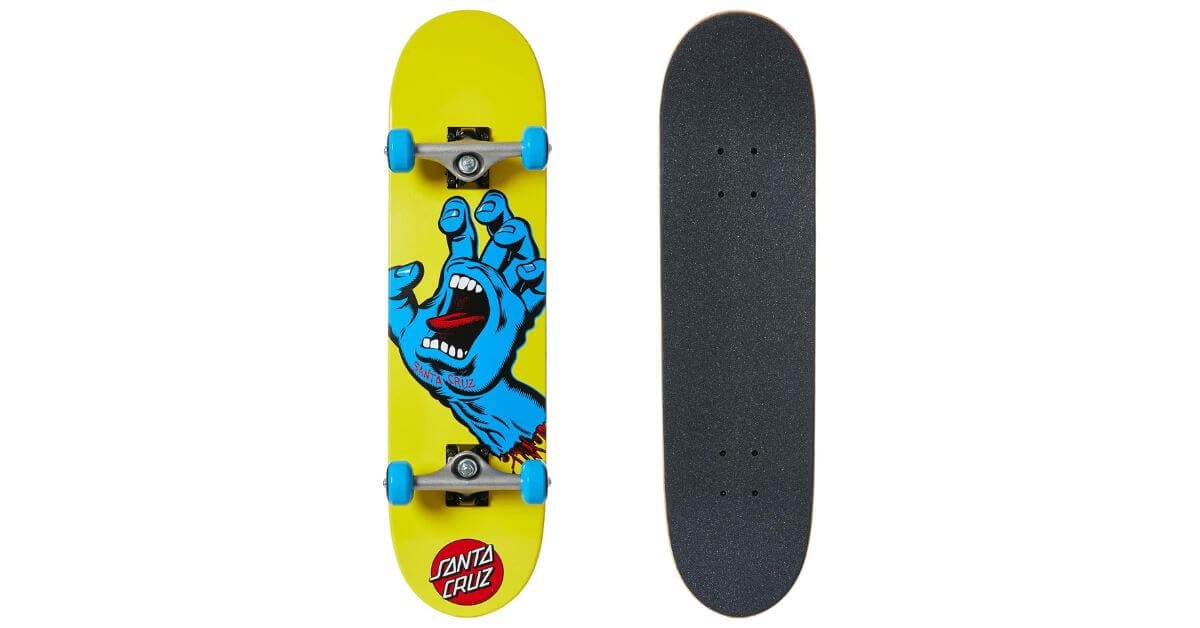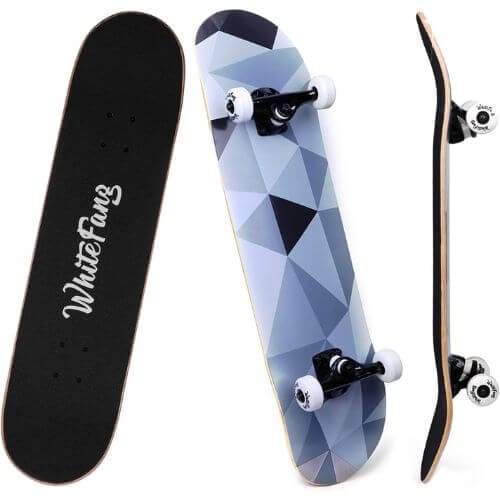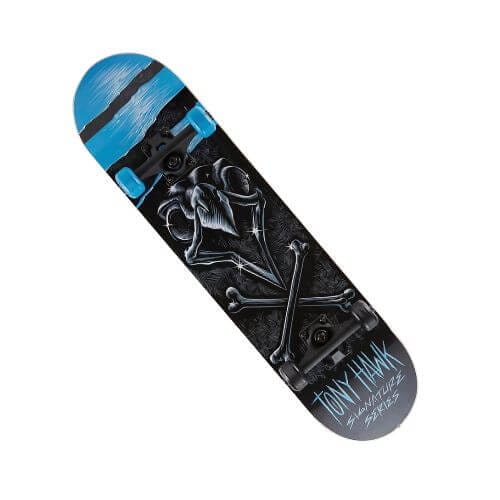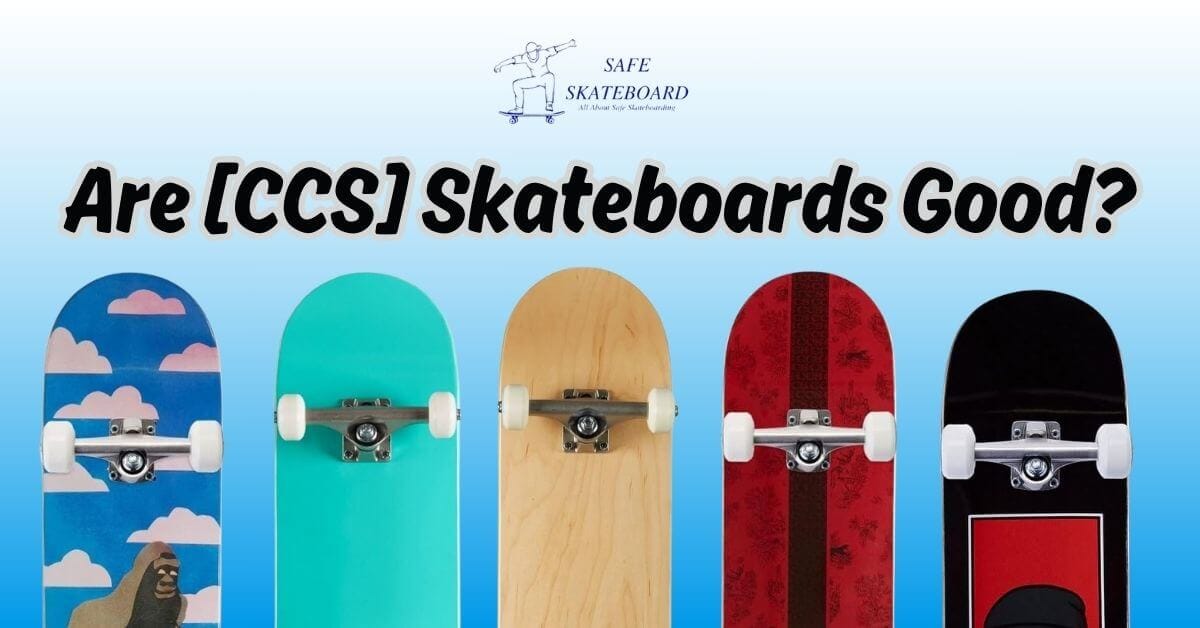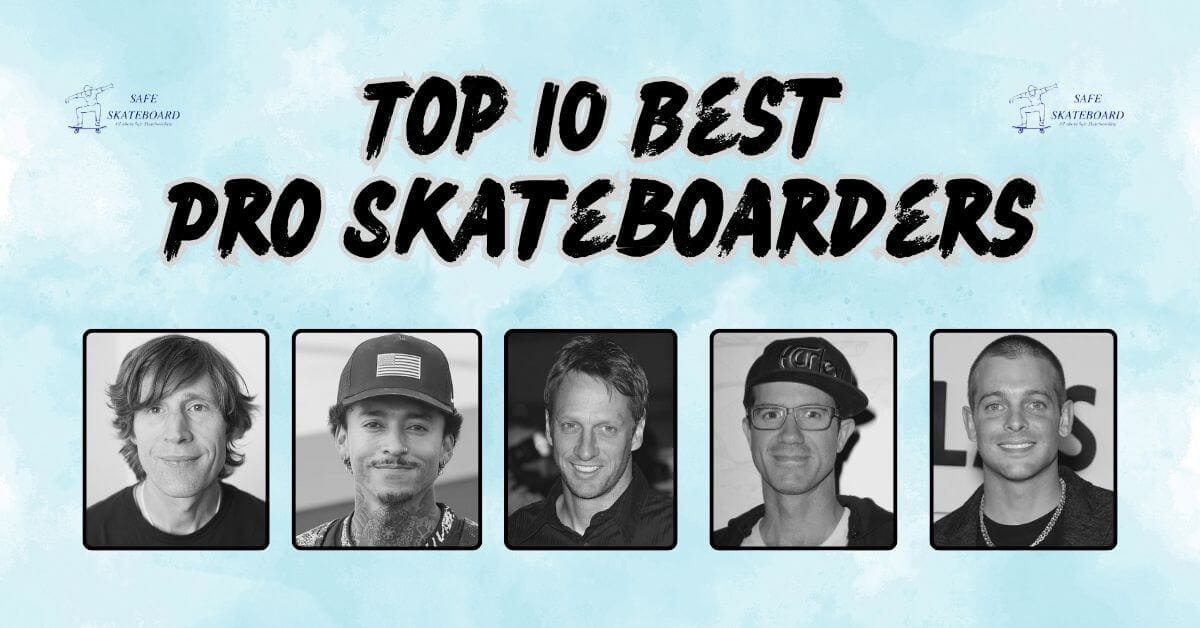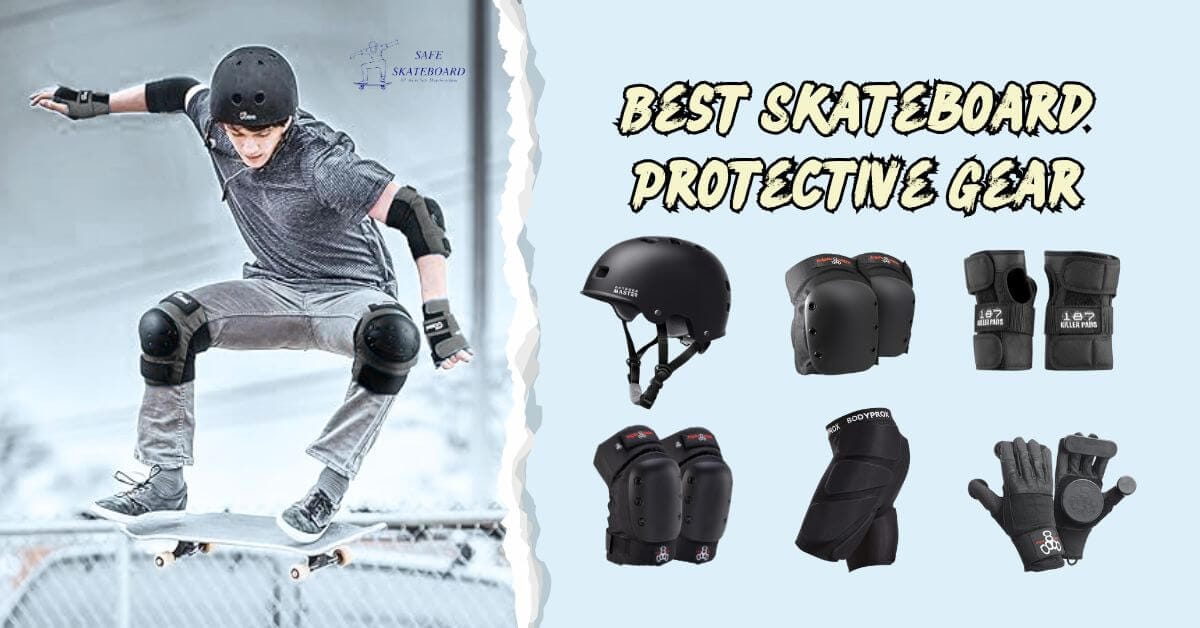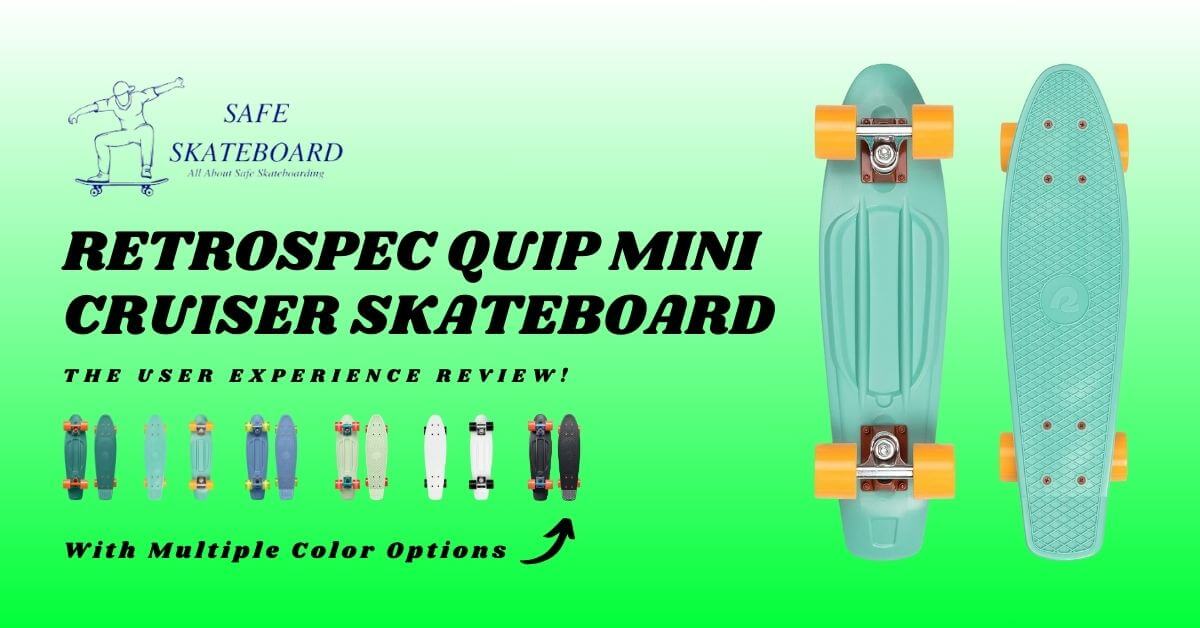Skateboarding is a sport that has no age limits. While some may feel it’s too late to start skateboarding, factual data proves otherwise. From the average age of skateboarders to the wisdom shared by skateboard legends. You’re never too old to hop on a board and ride.
Thus, if you’ve been wondering if age is a barrier to skateboarding, this blog post will debunk that myth and show you that it’s never too late to embrace the thrill of skateboarding, regardless of age.
So, don’t be late; take your skateboard and enjoy.
Age Is Just A Number: Debunking Skateboarding Stereotypes
Skateboarding knows no age limits. Discover how age is just a number and debunk the stereotypes that dictate how old is too old to skateboard. Let passion and resilience determine your skateboarding journey.
In recent years, increasingly aging skateboarders have defied societal norms by continuing to pursue their passion well into their later years.
So, it’s time to debunk the stereotypes and showcase the benefits of skateboarding at an older age.
Aging skateboarders defy social norms:
- Age is no barrier: skateboarders in their 40s, 50s, and beyond are proving that skateboarding is not reserved for the young.
- Breaking stereotypes: Older skateboarders challenge the perception that skateboarding is strictly for rebellious youth.
- Living life to the fullest: Aging skateboarders inspire others by showing that it’s never too late to follow your passions and embrace an active lifestyle.
Surprising Health Benefits of Skateboarding in Older Age:
- Cardiovascular workout: Skateboarding provides a fun and engaging way to get your heart pumping and improve your cardiovascular health.
- Balance and coordination: Maintaining balance on a skateboard requires core strength and coordination. Which can help improve overall bodily control.
- Muscle tone and strength: The constant movements and balance adjustments while skateboarding engage various muscle groups, improving muscle tone and strength.
- Mental agility: skateboarding involves quick decision-making, spatial awareness, and problem-solving skills. Which can help keep the mind sharp and agile.
- Stress relief: Engaging in physical activity releases endorphins, providing a natural mood boost and reducing stress levels.
- Sense of community: Skateboarding can bring people of all ages together, creating a sense of camaraderie and support within the skateboarding community.
Skateboarding is not just for the young and daring. It’s a lifelong activity that individuals of all ages can enjoy.
So, if you’re an aging skateboarder or someone considering skateboarding later in life, don’t let stereotypes hold you back.
Skateboarding And Physical Health
Skateboarding is a beneficial activity for people of all ages, including adults. Skateboard can help improve physical health and fitness, regardless of how old you are. Get on a skateboard and enjoy the thrill while staying active and healthy.
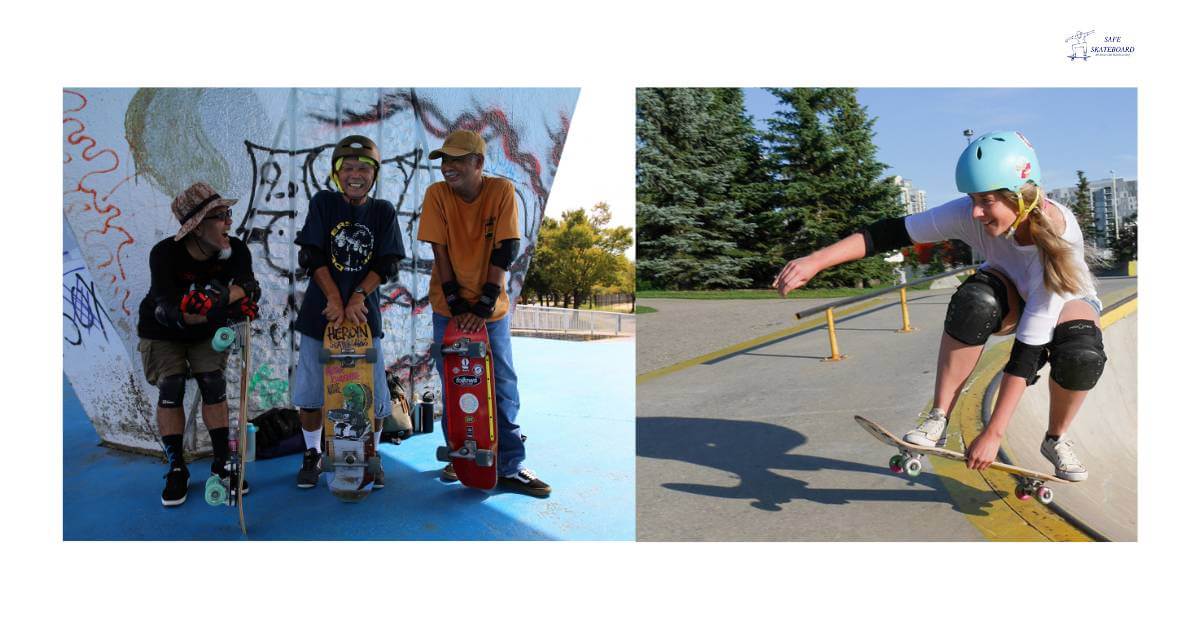
Skateboarding As A Form Of Exercise For All Ages
Skateboarding is not just for the young. People of all ages can enjoy it as a fun and effective way to stay fit.
Whether you are a teenager or a grandparent, skateboarding can offer numerous physical health benefits. Here’s how:
- Cardiovascular health: Skateboarding is a high-intensity activity that gets your heart rate up and improves cardiovascular function. Regular skateboarding sessions can increase your stamina and endurance, contributing to a healthier heart and improved overall cardiovascular health.
- Leg muscles: Riding a skateboard requires constant leg movement, which engages muscles such as quadriceps, hamstrings, and calves. These muscles get a thorough workout, leading to increased strength and tone.
- Core muscles: Balancing on a skateboard activates your core muscles, including the abdominal muscles, obliques, and lower back muscles. These muscles help stabilize your body and maintain balance while skateboarding.
- Arm and shoulder muscles: Pushing off and performing tricks involves using arm and shoulder muscles. As you skateboard more, these muscles become stronger and more defined.
- Balance and coordination: Skateboarding demands excellent balance and coordination. Regular practice can significantly enhance these skills, improving motor control, stability, and posture.
So, don’t let age limit your skateboarding journey; get on the skateboard and experience the joy of this fantastic sport.
Psychological Benefits Of Skateboarding
Skateboarding offers psychological benefits regardless of age, demonstrating no specific age limit for engaging in this popular activity.
Whether young or old, individuals can enjoy the mental advantages of skateboarding. Such as increased self-confidence, stress relief, and a sense of accomplishment.
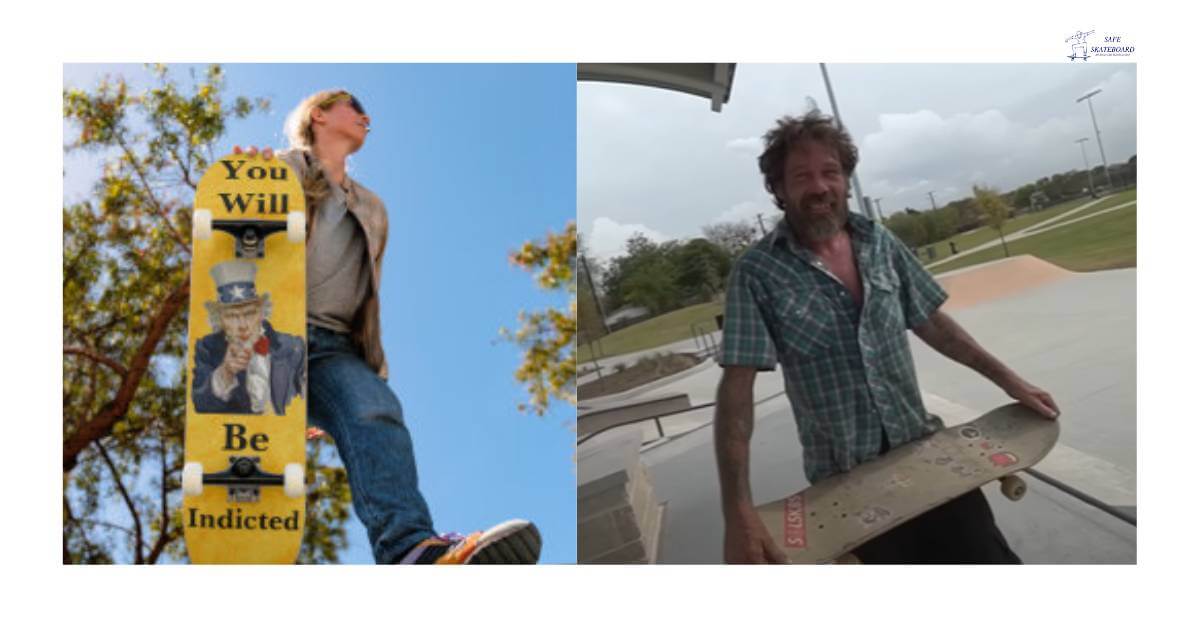
Skateboarding can provide numerous psychological benefits, regardless of age. In this section, I will explore three key reasons skateboarding can positively impact mental well-being, self-confidence, stress relief, and personal growth.
Boosting Mental Well-Being And Self-Confidence
Skateboarding has the power to boost mental well-being and self-confidence in several ways:
- Improves focus and concentration: Riders must stay focused and aware of their surroundings when skateboarding. So, this concentration level can help clear the mind of negative thoughts and improve mental clarity in other areas of life.
- Boosts self-confidence: As riders learn and master new tricks and techniques. It can significantly boost their self-confidence. However, each successful accomplishment on a skateboard can make riders feel a sense of achievement and personal growth.
- Enhances problem-solving skills: Skateboarding presents different challenges and obstacles riders must overcome. So, this constant problem-solving helps improve cognitive skills, which can be applied to various aspects of life.
Skateboarding As A Stress-Reliever
Skateboarding can act as a stress reliever and provide an outlet for releasing tension:
- Physical activity and endorphins: Engaging in physical activity while skateboarding releases endorphins, which are natural mood-boosting chemicals. So this can help reduce stress levels and promote a more positive mindset.
- Escape from the daily routine: Skateboarding can be a break from the daily grind. Stepping on a skateboard can transport riders into a different world. For instance, allowing them to disconnect from stressors and focus on the present moment.
- Connecting with nature: Skateboarding often occurs outdoors, where riders can enjoy fresh air and immerse themselves in natural surroundings. So, being in nature has been shown to reduce stress and anxiety and promote overall well-being.
Overcoming Fear And Pushing Personal Limits
Skateboarding pushes individuals to conquer their fears and go beyond their limits:
- Developing resilience: Skateboarding requires perseverance and the willingness to fail and try again. So, this resilience can extend to other areas of life, helping individuals face challenges with a positive mindset.
- Building courage: Trying new tricks or attempting more challenging obstacles takes courage. However, overcoming fear in skateboarding can help individuals build courage and tackle fears in other aspects of life.
- Pushing personal limits: Skateboarding encourages individuals to push their limits continuously by setting goals and working towards them. For instance, riders can experience personal growth and a sense of accomplishment.
Skateboarding offers a range of psychological benefits, including boosting mental well-being, providing stress relief, and aiding personal growth.
Staying Safe While Skateboarding At An Older Age
Following some safety precautions is essential to continue to enjoy skateboarding while minimizing the risk of injury. So, here are three vital aspects to consider:
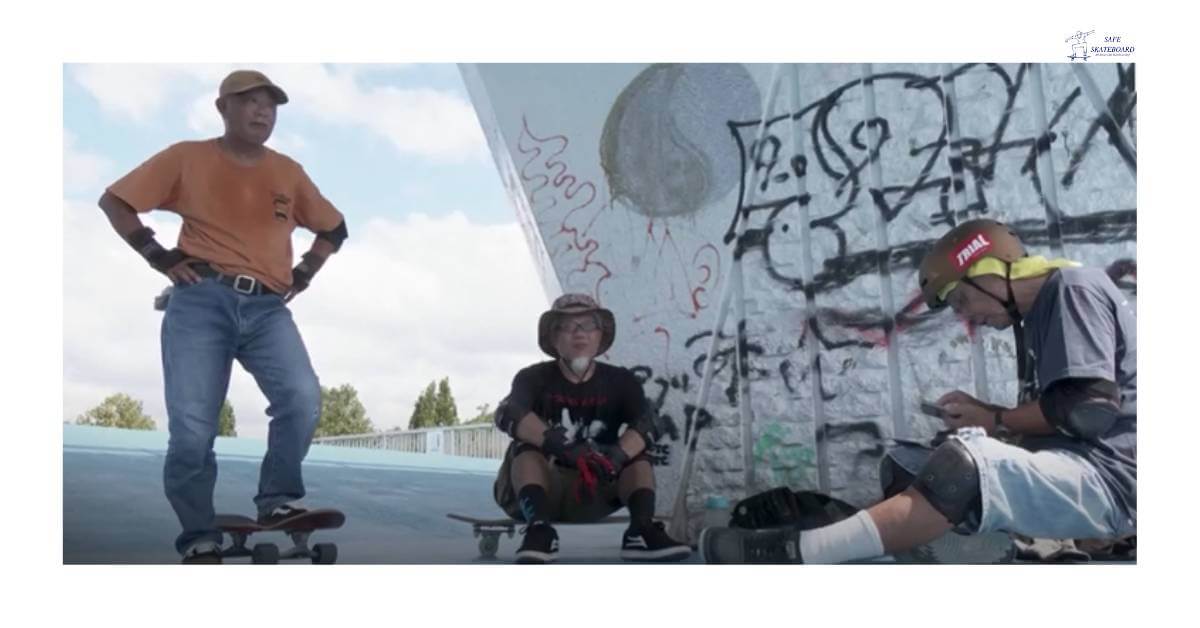
The Importance of Wearing Protective Gear:
- Helmets: Shielding your head with a well-fitting helmet significantly reduces the risk of head injuries. Opt for certified helmets explicitly designed for skateboarding.
- Knee and elbow pads: Protect your joints by donning knee and elbow pads. These will help cushion potential falls and minimize the impact on these vulnerable areas.
- Wrist guards: Older skateboarders are often more prone to wrist injuries. Wearing wrist guards will provide stability and reduce the chance of sprains or fractures.
Warm-Up Exercises and Stretches for Older Skateboarders:
Taking a few minutes to warm up before skateboarding can make a significant difference in preventing injuries:
- Joint mobility exercises: Perform exercises that gently mobilize your joints, such as ankle circles and shoulder rolls.
- Dynamic stretches: Engage in dynamic stretches like leg swings and arm circles to enhance blood flow and flexibility.
- Light cardio: Incorporate a light jog or jumping jacks to elevate your heart rate and warm up your muscles.
Selecting Appropriate Skateboarding Spots and Surfaces:
Choosing the right location for skateboarding is crucial for older individuals, as certain surfaces may be more forgiving:
- Smooth and even ground: Look for areas with smooth and even surfaces to minimize the risk of tripping or stumbling.
- Skateparks: Skateparks are designed with various skill levels in mind, and many have resources catered specifically to older skateboarders. These parks typically have ramps, rails, and obstacles for all abilities.
- Avoiding high-traffic areas: Stay away from crowded streets or heavily trafficked areas to reduce the likelihood of collisions and accidents.
Remember, skateboarding is all about having fun and staying active. Wear protective gear, warm up properly, and select suitable skateboarding spots and surfaces. You can continue enjoying this exciting sport well into your later years.
Community And Support: Connecting With Other Older Skateboarders
Connect with fellow older skateboarders through a supportive community for skateboarding enthusiasts of all ages.
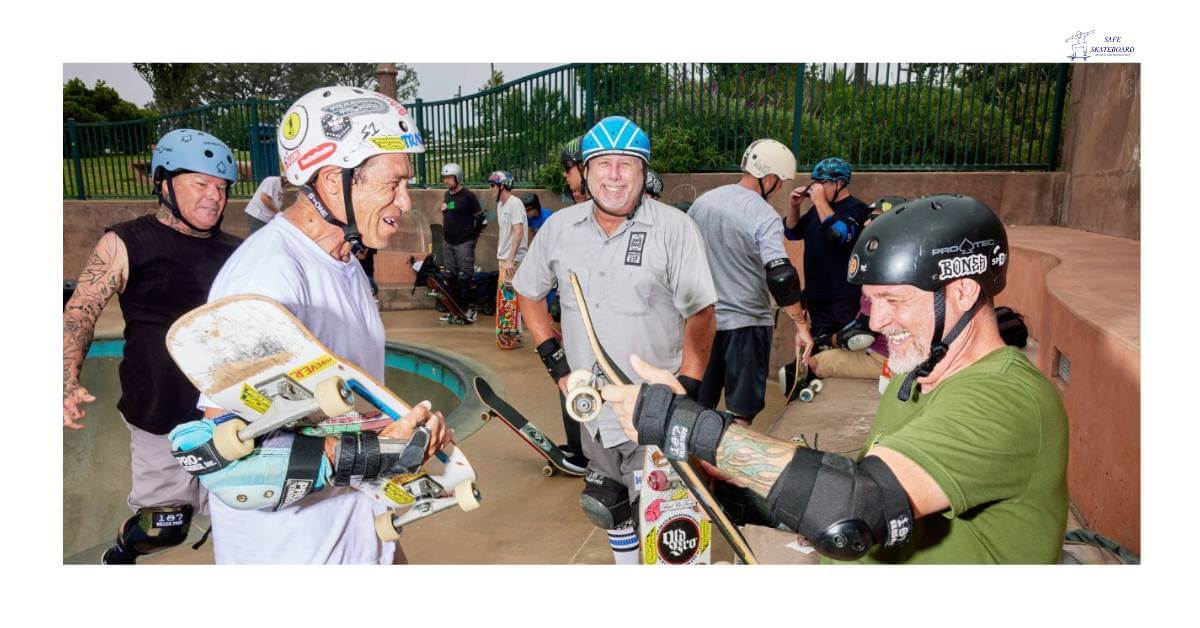
Discover how age should never limit your passion for skateboarding and find inspiration from like-minded individuals.
Skateboarding Clubs And Groups For Older Adults
Skateboarding is not just for the young; plenty of clubs and groups specifically cater to older adults. Who are still passionate about hitting the skatepark.
For instance, these communities provide a supportive and inclusive environment for individuals to connect, learn, and grow.
Here are some ways you can engage with these skateboarding clubs and groups:
- Join local skateboarding clubs: Many cities have skateboarding clubs that welcome adults of all ages. These clubs organize regular meetups, workshops, and competitions, allowing you to connect with fellow skateboarders.
- Attend skateboarding events: Watch for skateboarding events in your area targeting older adults. These events often feature demonstrations, workshops, and opportunities to network with other like-minded individuals.
- Participate in skateboarding workshops: Many skate shops and skateparks offer workshops and lessons for older adults. These sessions can help you improve your skills, learn new tricks, and connect with others on a similar skateboarding journey.
Sharing Experiences And Advice
As an older skateboarder, you have a wealth of experience and knowledge to share with others. For instance, here are some ways you can share your experiences and advice with fellow skateboarders:
- Share your stories: Whether through personal anecdotes or blog posts, sharing your skateboarding journey can inspire and motivate others. Consider starting a blog or contributing to skateboarding publications to reach a wider audience.
- Mentor younger skateboarders: One of the best ways to pass on your knowledge is by mentoring younger skateboarders. Offer tips, guidance, and encouragement to the next generation of skateboarders. For instance, your experience and wisdom can significantly impact their skateboarding journeys.
- Collaborate with skateboarders: Collaborating with skateboarders allows you to learn from each other and create unique content. However, consider partnering with fellow skateboarders for videos and podcasts or organizing skateboarding events together.
Inspiring The Next Generation Of Skateboarders
As an older skateboarder, you can inspire and encourage younger individuals to take skateboarding. For instance, here are a few ways you can inspire the next generation:
- Volunteer at skateboarding programs: Many cities have skateboarding programs for children and teenagers. Offer your time and expertise as a volunteer coach or mentor by sharing your passion for skateboarding. So, you can inspire younger individuals to give it a try.
- Organize skateboarding workshops: Collaborate with local schools or youth centers to organize skateboarding workshops for younger individuals. During, teach them the basics, share your love for the sport, and encourage them to explore the world of skateboarding.
- Be a positive role model: Leading by example is a powerful way to inspire others. Show your love for skateboarding, demonstrate good sportsmanship, and embody the positive aspects of the skateboarding community. For example, your enthusiasm and passion will naturally draw others towards the sport.
By joining clubs and groups, sharing experiences and advice, and inspiring the next generation. So you can continue to enjoy and contribute to the skateboarding community.
So grab your skateboard and let the skateboarding journey continue.
Breaking Barriers: Inspiring Stories Of Older Skateboarders
Discover the captivating tales of older skateboarders who defy age limitations, proving there’s no such thing as being too old to skate.
Witness their inspiring journeys of breaking barriers and redefining what it means to chase your passion, regardless of age. Skateboarding isn’t just for the young and daring.
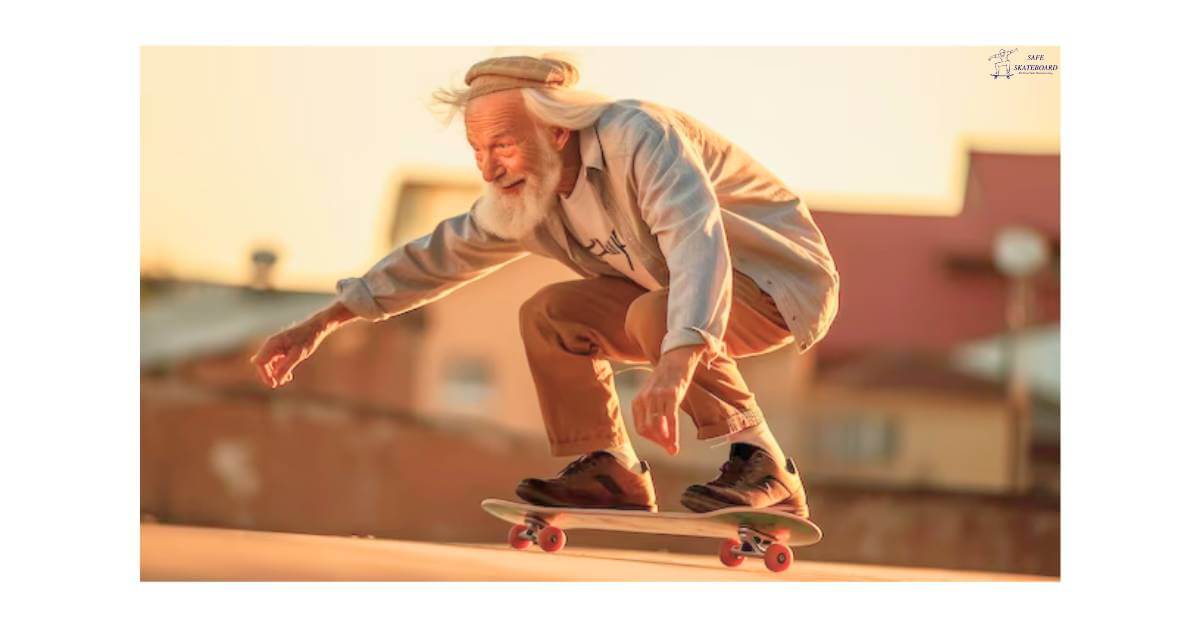
On the other hand, Older individuals are breaking barriers and inspiring us all with their passion for this exhilarating sport.
In this section, I’ll delve into the profiles of successful older skateboarders, how they’ve overcome ageism in the skateboarding community, and how they achieve personal goals while living life to the fullest.
Profiles Of Successful Older Skateboarders
- Spencer C., 57: Despite taking up skateboarding later in life, Spencer has become a well-known figure in the skateboarding community. His determination and love for the sport have earned him respect and admiration from skaters of all ages.
- Lisa R., 49: Lisa has proven that age is just a number for skateboarding. With her skills and creativity, she has been featured in several skateboarding magazines, inspiring others to pursue their passion without limitations.
- Dave M., 63: Dave started skateboarding in his 50s and hasn’t looked back. He has competed in various skateboarding events, showing true dedication and proving that you can achieve your dreams at any age.
Overcoming Ageism In The Skateboarding Community
- Shifting Perspectives: Older skateboarders have been instrumental in changing how the skateboarding community views age. They have challenged stereotypes and proven that skateboarding is an inclusive sport for all ages.
- Developing Support Networks: Through online communities and local skateboarding groups, older skateboarders have found support from like-minded individuals who understand their passion and dedication.
- Inspiring the Younger Generation: By showcasing their skills and sharing their stories, older skateboarders have inspired younger generations to embrace the idea that skateboarding can be a lifelong pursuit.
Achieving Personal Goals And Living Life To The Fullest
- Redefining What’s Possible: Older skateboarders have shattered preconceived notions about what can be achieved at their age by setting personal goals and working hard to reach them. So, they prove it’s never too late to dream big and make them a reality.
- Embracing the Thrill: Skateboarding allows older individuals to experience excitement, adrenaline, and adventure. By pursuing their passion, they are truly living life to the fullest.
- Fostering Mental and Physical Well-being: Skateboarding offers a range of benefits, including improved balance, coordination, and cardiovascular health. Older skateboarders enjoy these physical advantages while also experiencing the mental satisfaction of pushing their boundaries.
Discover how these inspiring older skateboarders break barriers, overcome ageism, and achieve personal goals as they navigate the vibrant skateboarding world. Their stories testify that age should never limit one’s desire to shred.
Tips For Getting Started: Starting Or Returning To Skateboarding At An Older Age
Skateboarding is not just for the young and fearless. It can be a thrilling and fulfilling activity at any age, including adulthood.
If you’re contemplating starting or returning to skateboarding in your later years, it’s essential to approach it with the right mindset and set realistic goals.
In this section, I’ll explore some tips to help you get started or get back on the skateboard with confidence and enjoyment.
Building Confidence And Setting Realistic Goals:
- Begin with the basics: Focus on balance, posture, and foot placement. Practice standing on the skateboard and getting comfortable with the feeling.
- Take it slow: Start with small movements and gradually build your confidence. So, taking breaks and going at your own pace is okay.
- Master the fundamentals: Learn to push off, turn, and stop before attempting more advanced tricks or maneuvers.
- Set achievable goals: Break down your skateboarding journey into smaller milestones. Celebrate each accomplishment and use them as motivation to keep progressing.
- Embrace your limitations: Accept that you may not be able to do certain tricks or reach the same level as younger skateboarders. However, Focus on your personal growth and enjoyment.
Seeking Guidance From Experienced Skateboarders:
- Join a skateboarding community: Look for local skate parks or groups where you can connect with experienced skateboarders who can offer guidance and support.
- Take lessons: Consider enrolling in skateboarding lessons tailored for adults. Professional instructors can teach you proper techniques and help you progress safely.
- Learn from online resources: Watch tutorial videos or read blogs and articles that provide tips and advice for older skateboarders. For instance, online communities can also be a valuable source of information and encouragement.
Progressing At Your Own Pace:
- Listen to your body: Skateboarding can be physically demanding, so pay attention to any discomfort or signs of strain. Take breaks when needed and incorporate stretches into your routine.
- Stay consistent: Practice regularly to build muscle memory and improve your skills over time. Even short practice sessions can make a difference.
- Explore different styles: Experiment with various types of skateboarding, such as cruising, vert, or freestyle. So, find what suits your preferences and abilities.
- Enjoy the journey: Skateboarding is not just about reaching a destination; it’s about having fun and embracing the process. After that, celebrate small victories and relish the joy that skateboarding brings.
Remember, age should never limit your passion for skateboarding. So grab that skateboard and start shredding.
Frequently Asked Questions
Is 24 Too Old To Skateboard?
No, 24 is not too old to skateboard. Anyone of any age can learn and enjoy skateboarding.
Can a 51-year-old man pump a skateboard?
Yes, a 51-year-old man can do it. Age doesn’t matter you can Pump on a skateboard at any age.
What Age Is Too Late To Start Skating?
It’s never too late to start skating! Age doesn’t matter – anyone can learn and enjoy skating anytime.
Is 21 Too Old To Start Skateboarding?
No, 21 is not too old to start skateboarding. You can learn and enjoy skateboarding at any age.
Can You Start Skateboarding At 18?
Yes, you can start skateboarding at 18. Age does not limit the ability to learn and enjoy skateboarding.
Executive Summary
Finding the right age to hang up your skateboard can be a personal decision. But age shouldn’t limit your passion and love for skateboarding. No arbitrary age determines when you should stop skateboarding; it’s more about your physical condition and mindset.
So, don’t let age hinder you; instead, embrace the freedom and joy that skateboarding brings and keep shredding for as long as possible.
